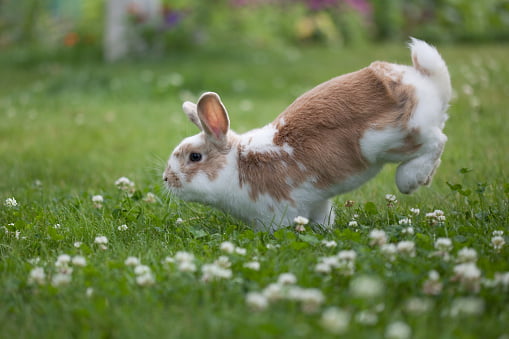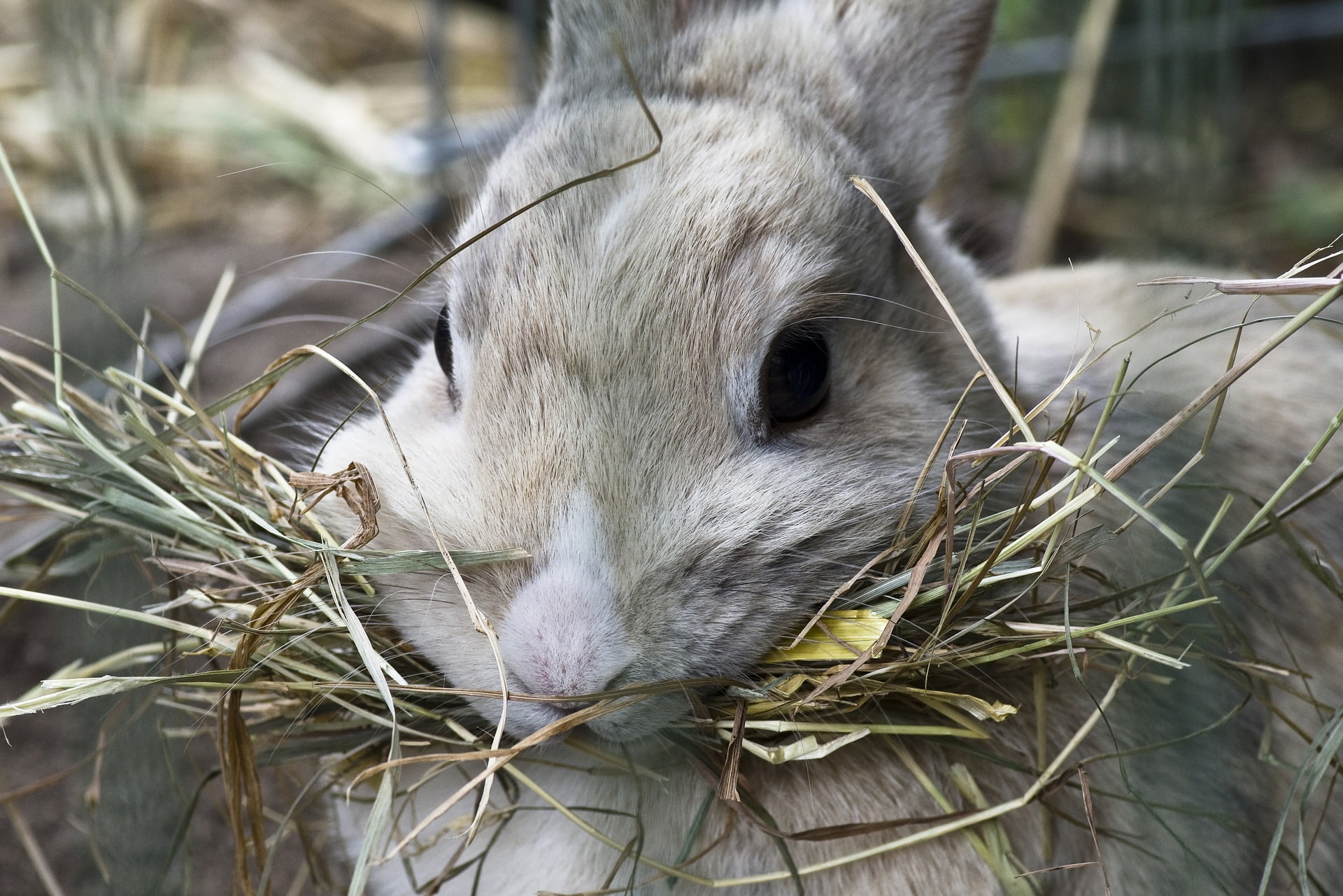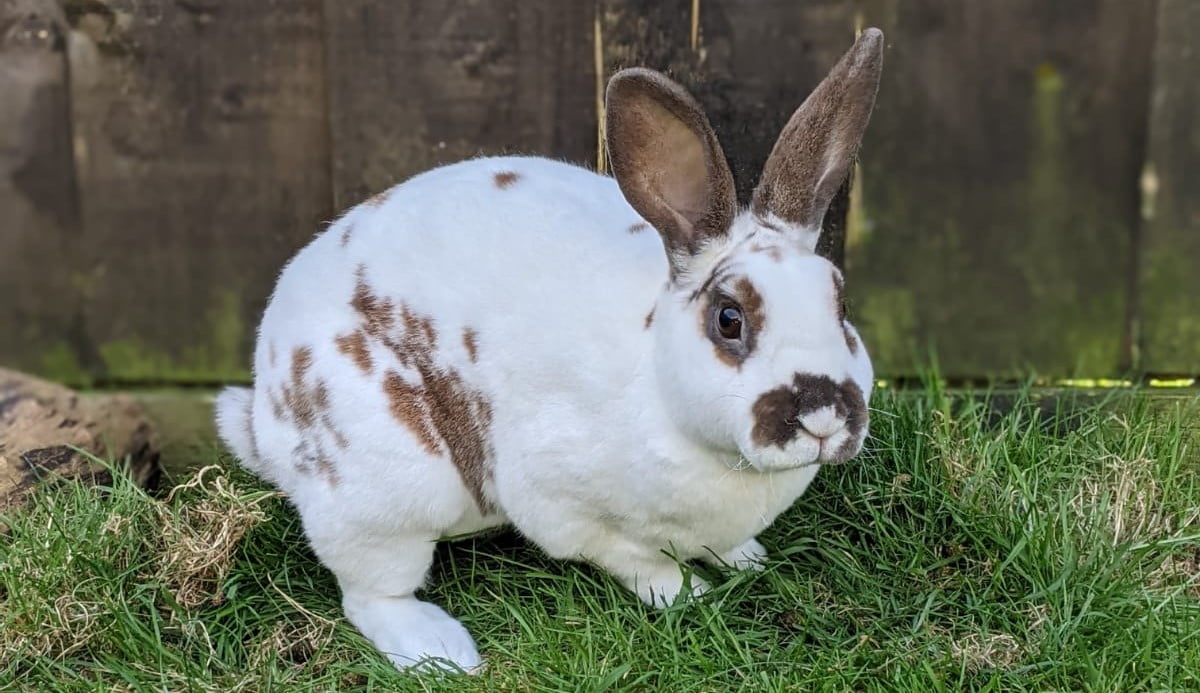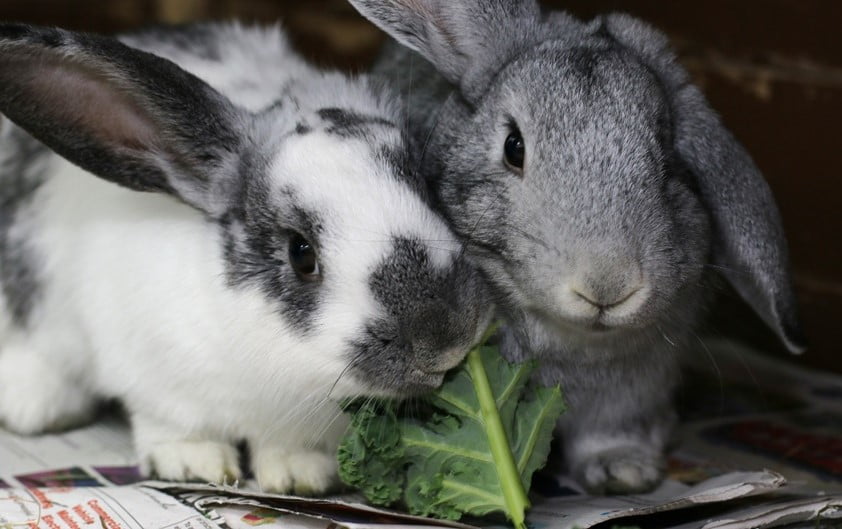
It’s Rabbit Awareness Week so if you’re a new rabbit owner or are thinking of getting one as a pet, you’ve come to the right place!
Read on for our top tips on rabbit care, and what to consider before buying one.
Rabbits are social animals and should never be kept alone

Rabbits need other rabbits as friends and will become very depressed if kept alone. You should always have at least 2 rabbits to keep each other company.
Rabbits need spacious living accommodation

Whether they live indoors or outdoors, rabbits need spacious living accommodation and access to a large running area to meet their welfare needs; a hutch is not enough!
Rabbits need the freedom to exhibit natural behaviours

Rabbits need the freedom to be ….. well, rabbits!
They need to be able to display natural behaviours like running, digging, jumping, grazing and binkying (binkying is when a rabbit leaps in the air for joy!).
For this they need access to an enclosed garden or big run where they can let rip and behave as they would in the wild.
Rabbits need the correct diet

Rabbits need to be kept clean
Rabbits need frequent grooming

Find a rabbit-savvy vet
Rabbits need to be vaccinated every year

Rabbits don’t make easy pets for children

A rabbit is a 10 year commitment

A rabbit can cost you up to £11,000 in its lifetime






